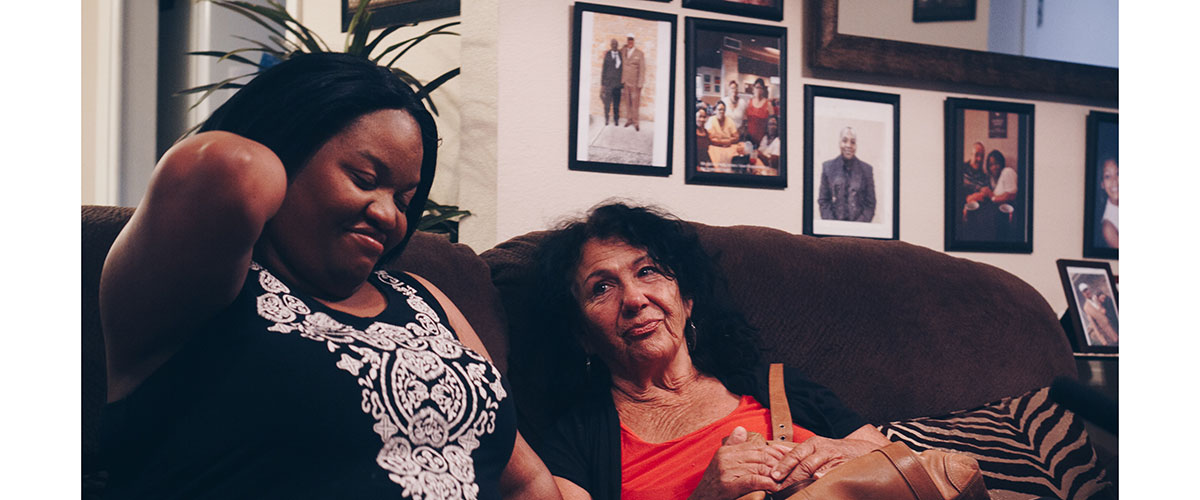Behavioral Health Victims Women August 27, 2019
The United States has the highest maternal death rate in the developed world, with 26 women dying out of every 100,000 live births.
For Black mothers, this danger is even more acute, with a maternal death rate that is three to four times that of non-Hispanic white mothers. The CDC Foundation estimates that 60 percent of all maternal deaths in the U.S. are preventable.
Maintaining maternal health is of vital importance for both mother and child. But when pregnant women are incarcerated, the situation becomes more complicated.
In 2002, the most recent data available, the Bureau of Justice Statistics estimated that 5 percent of women in jail nationwide were pregnant. Women are the fastest growing population behind bars today and nearly 80 percent of incarcerated women are mothers.
Shandra Williams was one of them. Reporter Rowan Moore Gerety profiled Williams for a two-part episode—airing this week and next—on the open-source podcast 70 Million. Williams, who spent much of her pregnancy in a Texas jail on a probation violation, described her experience of being away from her husband and unable to see a doctor, not receiving medical attention for cramps and bleeding, and being placed in solitary confinement after her water broke. Her pregnancy helped lead to the changing of laws in Texas to better protect the health and safety of pregnant women behind bars.
Women coming into jail often are already experiencing high-risk pregnancies. But, like Williams, many expectant mothers receive limited to no medical care while behind bars, according to a Bureau of Justice Statistics report. They may be shackled during their pregnancies, and even while giving birth. They may also be separated from their children soon after giving birth, preventing them from breastfeeding and denying them the many benefits medical experts have identified for both moms and newborns of skin-to-skin contact.
“A lot of places are not thinking about pregnant women,” says the Vera Institute of Justice’s Elizabeth Swavola, a program manager and co-author of the report Overlooked: Women and Jails in an Era of Reform.
Researchers like Swavola note that there are best practices for jurisdictions interested in improving their care of pregnant women behind bars.
- Ending the shackling of pregnant women. Twenty-eight states have laws prohibiting the shackling of pregnant women, though some only prohibit shackling during childbirth.
- Ending the use of solitary confinement for pregnant women. Starting this October, Maryland will prohibit correctional facilities from placing pregnant women in isolation against their will. Georgia and Texas will also ban the use of solitary confinement for pregnant women this year.
- Ensuring pregnant women receive the medical care that they deserve. Last month, Cook County Jail—the largest single-site jail in the country—announced a $500,000 effort to offer medical care, drug treatment, and counseling for pregnant and postpartum women behind bars.
- Providing nurseries that allow mothers to stay with their children after birth. The Rose M. Singer Center at Rikers Island in New York opened the first jail-based nursery in 1985 and now offers parenting classes and post-natal workshops for incarcerated women. Such nurseries allow mothers to breastfeed and help keep both moms and kids healthy during the recovery period and after birth.
All of these strategies could dramatically improve the lives of pregnant women in custody. But Swavola says the best way to help pregnant women stay healthy is to keep them out of our nation’s jails and prisons in the first place.
In recent years, states like Oklahoma, Oregon, and Illinois have experimented with pretrial diversion programs aimed at keeping pregnant women out of jail while they’re waiting for their cases to resolve. And mother-focused legal services like I reported on last season for 70 Million could help women post bail and meet court requirements to stay out of jail. Free to see their doctors and get the support they need from family members, these women will have a much better chance at having the safe and healthy pregnancies they deserve.

